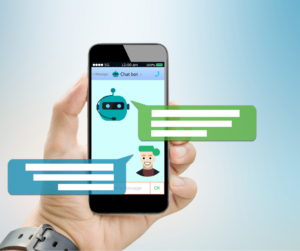The 21st century has ushered in unprecedented technological advancements, influencing how we live, work, and learn. In the realm of education, and online course creation, artificial intelligence (AI) is emerging as a powerful tool that is not just the future but the present. AI’s integration into course creation is transforming online learning experiences, offering new capabilities that can significantly enhance and personalize education for learners and educators alike. So, how can artificial intelligence be used in the world of education? In this article, we will explain how to use this amazing technological tool.
In this comprehensive exploration, we will take you through the varied ways in which artificial intelligence in education is propelling course creation to new heights, and the potential it holds for reshaping the landscape of online education.
AI Content Creation Course Tools
Creating high-quality educational content is a labor-intensive process, often requiring hours of research, organization, and structuring. However, AI has started to streamline the process, offering tools and resources that can significantly reduce the time and effort needed to develop course materials. These tools use natural language processing (NLP) and machine learning algorithms to analyze existing content, identify gaps, and generate new material.
One example of an AI tool for content creation is OpenAI’s GPT-3 (Generative Pre-trained Transformer 3), which uses NLP to produce human-like text. Teachers can input a topic or specific keywords into the program,
Automated Lesson Planning
Imagine a tool that can take a learning objective and automatically generate a lesson complete with multimedia resources, quizzes, and assessments. AI-powered planners are beginning to do just that. These algorithms can analyze educational goals, recommend learning materials, and even structure lesson plans in line with pedagogical best practices.
Personalized Learning Experiences
AI enables the creation of adaptive learning paths for students. By incorporating machine learning models, course platforms can analyze individual student performance and preferences, thereby tailoring the learning experience to their unique needs. Tools like personal assistant software can help students manage their schedules and track their progress.
Content Curation and Recommendations
With the influx of educational content available online, finding the right resources can be a daunting task. AI-driven content curation systems can sift through vast libraries of information to recommend the most relevant and effective learning materials to both educators and students. This not only saves time but also ensures a high degree of engagement with the content.
AI For Student Engagement
Engaging students is a critical aspect of effective teaching. AI technologies are being employed to create interactive and dynamic learning experiences that captivate student interest and foster active participation in their own learning process. Let’s explore some concrete examples of how AI is boosting student engagement in online courses.

Through game design elements and mechanics, AI can turn mundane learning tasks into engaging and rewarding activities. For instance, an AI chatbot can communicate with students in a conversational manner during lessons, providing personalized feedback and rewards for completing certain tasks. This element of gamification transforms the learning environment, making it more appealing and enjoyable. Students are more likely to stay engaged when they feel like they are playing a game rather than just completing assignments. This approach not only makes learning fun but also increases motivation and retention. By incorporating elements such as leaderboards, badges, and progress tracking, AI gamification keeps students motivated to achieve their learning goals.
Gone are the days of multiple-choice exams as the sole measure of understanding. AI has brought forth a wave of interactive and adaptive assessment tools that can gauge learning through simulations, gaming elements, and real-time feedback platforms. These methods not only engage students more but also provide educators with a deeper understanding of student comprehension. Interactive assessments allow students to demonstrate their knowledge in diverse and practical ways, often providing instant feedback that helps them identify areas for improvement. This immediate response system keeps students engaged and informed about their progress, fostering a more interactive and responsive learning environment. Moreover, these tools can adapt to each student’s performance, offering more challenging questions or additional support as needed.
We’ve touched on it briefly, but it’s worth a deeper look. Adaptive learning goes beyond personalized recommendations; it adapts the flow and content of the course in real-time based on the student’s performance. AI algorithms monitor how each learner is progressing, enabling the platform to present new challenges or offer additional support as needed. This means that each student receives a customized learning journey that addresses their strengths and areas for improvement. By adapting the course material to fit each student’s unique pace and style, AI ensures that all students remain engaged and challenged appropriately. This personalized approach helps maintain student interest and encourages continuous learning by making education more relevant and accessible.
AI-driven virtual tutors and chatbots serve as round-the-clock support systems, available to answer questions, provide explanations, and offer encouragement to learners. These tools can significantly reduce the workload on instructors while fostering independent learning by providing immediate and targeted support. Virtual tutors can guide students through complex topics, offering hints and tips without giving away answers, thereby promoting critical thinking and problem-solving skills. Chatbots, on the other hand, can handle routine inquiries and administrative tasks, freeing up valuable time for educators to focus on more personalized instruction. The availability of these AI tools ensures that students always have access to the help they need, whenever they need it, which can be particularly beneficial for those studying in different time zones or juggling busy schedules.
In conclusion, AI technologies are revolutionizing the way we engage students in online courses. By incorporating gamification, interactive assessments, adaptive learning paths, and virtual tutors and chatbots, AI creates a more dynamic, personalized, and engaging learning experience. These advancements not only make learning more enjoyable for students but also provide educators with valuable insights into student performance and comprehension. Embracing AI in education holds the promise of transforming traditional teaching methods and significantly enhancing student engagement, leading to better learning outcomes and a more gratifying educational journey for both students and teachers.
AI For Course Improvement
How do we know if a course is truly effective? AI brings measurement and data to the forefront, giving course creators the insight they need to continually enhance their offerings.
Data-Driven Insights
Every action a student takes within an online course can be tracked and analyzed, providing a wealth of data on user behavior. AI processes this data to reveal trends and patterns that can inform decisions on content adjustments, pacing, and even the overall structure of a course.
Feedback Analysis and Course Optimization
Acquiring feedback from students is invaluable, but understanding and acting upon that feedback at scale can be challenging. AI tools can sift through feedback forms, social media comments, and other sources to uncover actionable insights on course quality.
Predictive Analytics for Student Success
By correlating student data with historical information, AI can predict which approaches may lead to better learning outcomes. Educators can then make strategic decisions on how best to support students, intervene when necessary, and optimize the learning process.
The AI-Infused Future Of Education
The integration of AI into online course creation is not without its challenges, particularly in the ethical use of data and the issue of biased algorithms. However, the benefits AI presents in terms of enhanced learning experiences, increased engagement, and more effective teaching strategies are profound.
Educators and online entrepreneurs who harness the power of AI are well-positioned to provide superior educational experiences in an increasingly digital world. Course creators can look forward to an era of education where AI not only aids in the creation and improvement of courses but also bridges gaps in access to quality education around the globe.
AI is not a replacement for human intelligence but rather a catalyst for augmenting our capabilities, promoting efficiency, and scaling the personalized learning that every student deserves.
As we chart a course into the AI-infused future of education, the question is not if this technology will impact course creation but how it can be harnessed to its full potential. For educators and online entrepreneurs, the task ahead is adaptation and integration, and for students, it is a future filled with promise and opportunity.
For more information about online course creation and other ways to make money online, sign up for our FREE bulletin!





